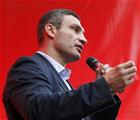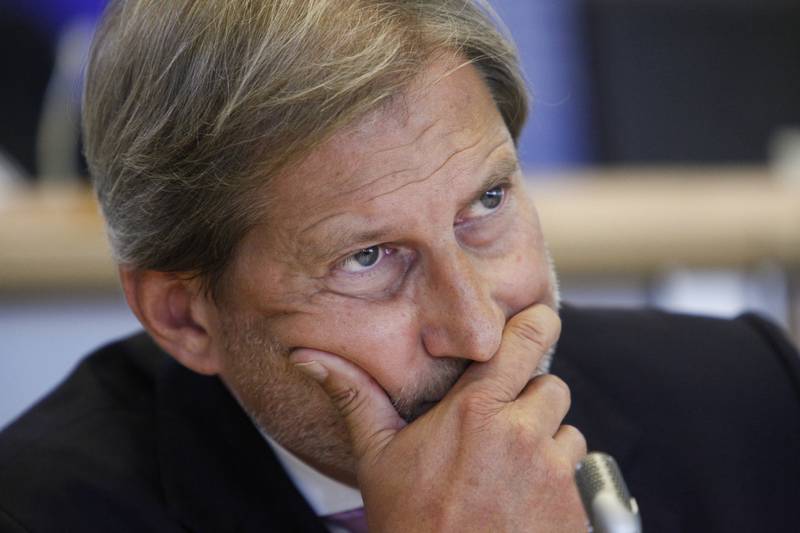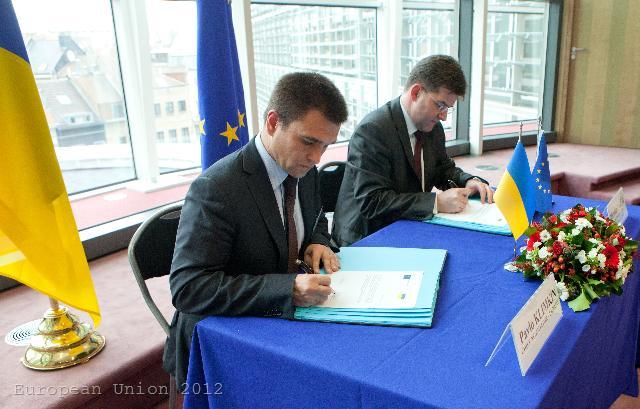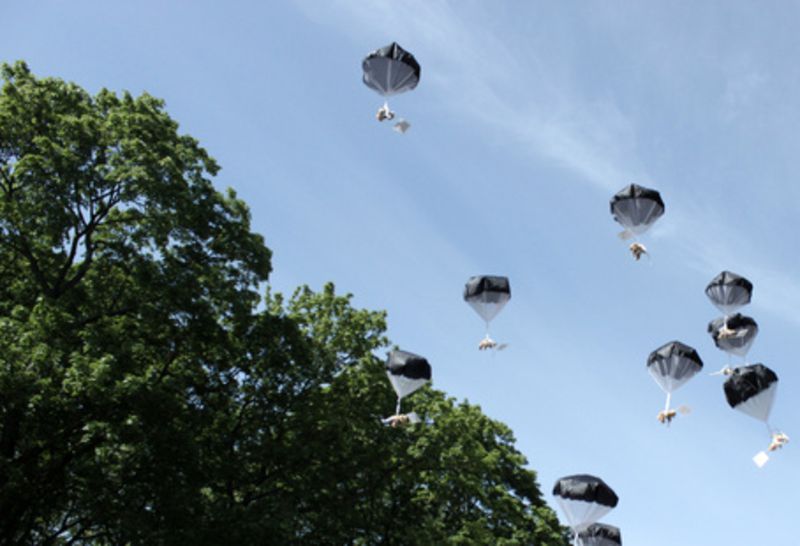The Long Shadow over the Elections in Ukraine
Ralitsa Kovacheva, October 6, 2012
 The main issue before the elections in Ukraine on 28 October is not so much who is going to win, but whether they will be free and fair. This is shown also by the huge number of observers already situated in the country - from the Organisation for Security and Cooperation in Europe (OSCE), various non-governmental organisations, different EU members and other countries. For Kiev elections are a chance to refute doubts that for the last two years the ruling majority of President Viktor Yanukovych has been setting up the stage to rule alone and for long, including at the expense of violation of democratic values and the rule of law. And the reasons for such doubts seem serious.
The main issue before the elections in Ukraine on 28 October is not so much who is going to win, but whether they will be free and fair. This is shown also by the huge number of observers already situated in the country - from the Organisation for Security and Cooperation in Europe (OSCE), various non-governmental organisations, different EU members and other countries. For Kiev elections are a chance to refute doubts that for the last two years the ruling majority of President Viktor Yanukovych has been setting up the stage to rule alone and for long, including at the expense of violation of democratic values and the rule of law. And the reasons for such doubts seem serious.
In a report of May 2012 the OSCE notes that after the 2010 presidential election there have been changes in Ukraine that affect the context of parliamentary elections. The ruling majority of the Party of Regions has taken a number of steps (a return to the 1996 Constitution, reform of the justice system and numerous changes in the judiciary), seen by many as strengthening the role of the executive branch, the report says. The organisation has also expressed concerns about media freedom. According to the paper, the media landscape is dominated by a private television, which was previously considered to be presenting diverse range of political views, but that diversity has declined significantly, probably because of the reluctance of the medium owners to get into conflict with the government.
The report describes other negative features in the media environment too, well known in Bulgaria as well - self-censorship, refraining from covering certain topics that require critical attitude towards the authorities, preventing access to TV air of interlocutors who are critical of the government. In turn, "media professionals have raised concerns that media outlets are concentrated in the hands of a small number of businesspeople, without transparency in ownership information". The reports notes that the Internet is becoming a more important source of information, but Internet penetration in the country is still limited.
The observers also note their concerns with regard to the change of the electoral legislation. These elections will be the first in Ukraine in ten years to be held using a mixed electoral system. It provides for half of the 450 members of the Verkhovna Rada (the parliament) to be elected from party lists in a single national constituency and the rest - in 225 local single-member districts. The threshold to enter parliament is also increased from 3 to 5 percent. Another novelty in the law is the prohibition to form electoral blocs.
In an article entitled "Is Ukraine repeating history?", published in the Kyiv Post newspaper, journalist Oksana Faryna argues that the mixed electoral system will affect the opposition and will benefit the government in the single-member districts, as that happened 10 years ago when the mixed system was last used. According to the article, vote buying is a mass phenomenon and the price of a vote in Kiev is $50, but in the province bread and chocolate suffice. Another prerequisite for violations is the opportunity in the new election law for a temporary change of voting address without changing the permanent voting address.
In recent days, the Canadian Foreign Ministry issued a sharp statement expressing concern with the irregularities identified by the Canadian observer mission in Ukraine. In its initial report, the mission describes various violations during the campaign, ranging from procedural irregularities and vote buying to restrictions on media freedom. "Free and fair elections that represent the will of the Ukrainian people are still possible. It is not too late," the statement says.
In fact, the main question is whether it is possible to have free and fair elections with beheaded opposition. "Imprisonments of key leaders of the opposition casts a very long shadow on these elections end that’s why it makes their conduct exceptionally sensitive and important," said former European Parliament President Pat Cox, who, together with former Polish President Aleksander Kwasniewski, was sent on a special mission to Ukraine on behalf of the Parliament. The aim of the mission, which started in June 2012, was to improve the humanitarian and legal situation of the Tymoshenko case, European Parliament President Martin Schulz explained. Former Prime Minister Yulia Tymoshenko and some of the ministers in her cabinet were convicted and jailed for abuse of power, but the European Union considers these cases politically motivated.
with beheaded opposition. "Imprisonments of key leaders of the opposition casts a very long shadow on these elections end that’s why it makes their conduct exceptionally sensitive and important," said former European Parliament President Pat Cox, who, together with former Polish President Aleksander Kwasniewski, was sent on a special mission to Ukraine on behalf of the Parliament. The aim of the mission, which started in June 2012, was to improve the humanitarian and legal situation of the Tymoshenko case, European Parliament President Martin Schulz explained. Former Prime Minister Yulia Tymoshenko and some of the ministers in her cabinet were convicted and jailed for abuse of power, but the European Union considers these cases politically motivated.
For this reason, the case casts a long shadow not only over the elections, but over the relations between Brussels and Kiev as well. The signing of the Association Agreement, which includes the first-ever agreement on deep and comprehensive trade area is protracted. Kiev insists that the development of EU-Ukraine relations should not be tied to specific cases and individuals. EU, in turn, argues that it is not about specific individuals but about respecting fundamental European principles and values. Therefore, the elections will be watched through a magnifying glass, and the results will be important both for the further development of the Tymoshenko case and for the Kiev-Brussels relations in general.
Yulia Tymoshenko herself is still being treated in hospital, which is better than in prison, Aleksander Kwasniewski said, and former Defence Minister Valeriy Ivashchenko has been released on parole. Pat Cox stressed that there were many legal aspects of the case which can be challenged before the European Court on Human Rights in Strasbourg. "We do believe that the issues are of sufficiently serious nature that the external adjudication certainly would happen." Another task of the mission was to check the progress of the judicial reform. The new Criminal Procedure Code will be in effect from November, and a new law for the prosecution is being prepared, expected to be adopted by the end of the year, Alexander Kwasniewski reported. The mission of the EP will be suspended during the campaign and will continue after the election until the end of the year, when it will present a formal report. The Parliament will send a separate mission to observe the elections, along with thousands of other foreign observers.
Apart from the question whether the elections will be free and fair, there is another interesting issue - can we expect the vote to answer the question whether Ukraine will make a choice between the EU and Russia? At this stage the Kiev's position is that European integration must continue without being at the expense of relations with Russia. Moreover, Ukraine could hardly make that choice unilaterally, while the EU -Russia relations are in a waiting period. The EU should clearly define its policy towards Russia, including in terms of Ukraine and other countries of the so called Eastern Partnership, to prevent their European integration from becoming a hostage to the Russian resistance. So far, however, the EU is preoccupied with its internal problems, dealing with the debt crisis and reforming its own institutions. And last but not least, with maintaining the values and principles, demanded from the EU neighbours, in its own member states - a problem, which in the long run may be even more dangerous than the economic crisis.
 Beside being decisive and carefully monitored, the elections in Ukraine draw attention with the participation of two major sports stars. The famous boxer - Vitaliy Klychko - has entered the race with his own party, eloquently called UDAR (English: strike) - Ukrainian Democratic Alliance for Reform. Currently, the party takes the third place in voters' preferences after the ruling Party of Regions and Yulia Tymoshenko's "Fatherland". Another sports legend - footballer Andriy Shevchenko - is running for a member of parliament from the party "Forward, Ukraine", for which, however, it is not certain whether it will be able to pass the five percent barrier to enter the Verkhovna Rada.
Beside being decisive and carefully monitored, the elections in Ukraine draw attention with the participation of two major sports stars. The famous boxer - Vitaliy Klychko - has entered the race with his own party, eloquently called UDAR (English: strike) - Ukrainian Democratic Alliance for Reform. Currently, the party takes the third place in voters' preferences after the ruling Party of Regions and Yulia Tymoshenko's "Fatherland". Another sports legend - footballer Andriy Shevchenko - is running for a member of parliament from the party "Forward, Ukraine", for which, however, it is not certain whether it will be able to pass the five percent barrier to enter the Verkhovna Rada.
 Johannes Hahn | © European Parliament
Johannes Hahn | © European Parliament | © European Union 2012
| © European Union 2012 | © Studio Total
| © Studio Total